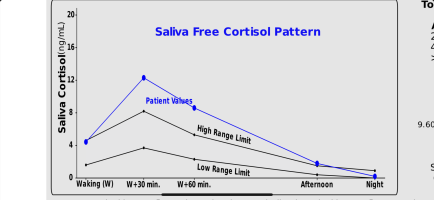MountainMouse
Member
- Joined
- Aug 20, 2015
- Messages
- 46
I’m recovering and on thyroid but I can’t sleep past 3am. I wake up to my body blasting off adrenaline or cortisol (or both) every day. It’s been a long road but no drug can get me through this part of the night. It doesn’t matter how much I’ve eaten into the night or if I set an alarm to eat at 2am. I went through crazy stress/brain inflammation after the shingles virus and I feel like I’m suffering a form of ptsd /exaggerated stress response/hpa dysfunction. What could I take to help re-set this so I can sleep? I’m always a mess until mid morning after it happens.
I tried progesterone previously when I didn’t have thyroid support. DHEA and Preg can make me really stiff for some reason. Theanine can make me stiff also but I’m tempted to try it again now that my temps are better on thyroid.
Attached is my Dutch Test when I was at my worst.
@FitnessMike - Did you struggle with something similar?
I tried progesterone previously when I didn’t have thyroid support. DHEA and Preg can make me really stiff for some reason. Theanine can make me stiff also but I’m tempted to try it again now that my temps are better on thyroid.
Attached is my Dutch Test when I was at my worst.
@FitnessMike - Did you struggle with something similar?
Attachments
Last edited:


